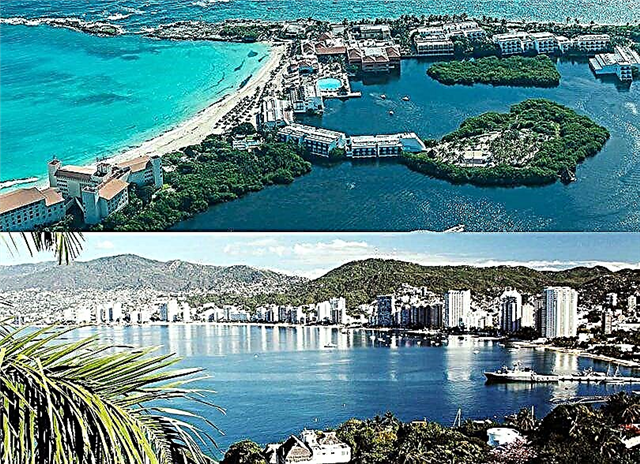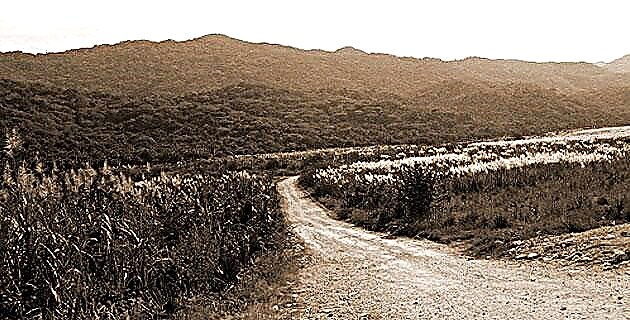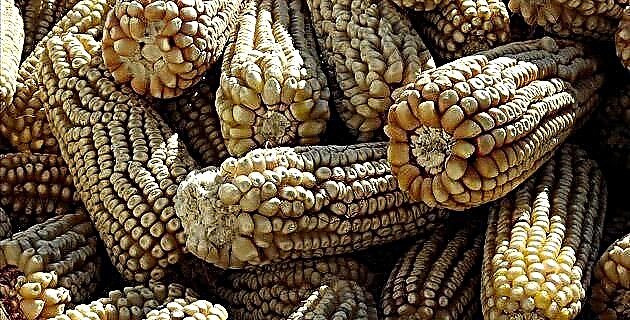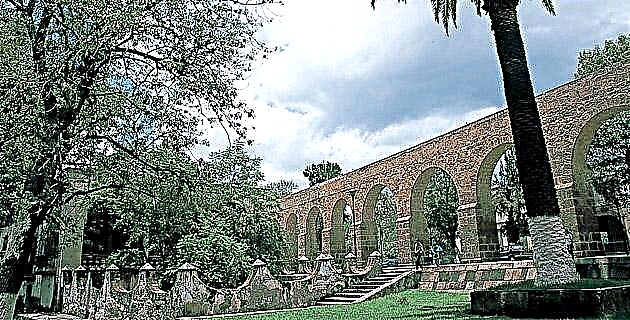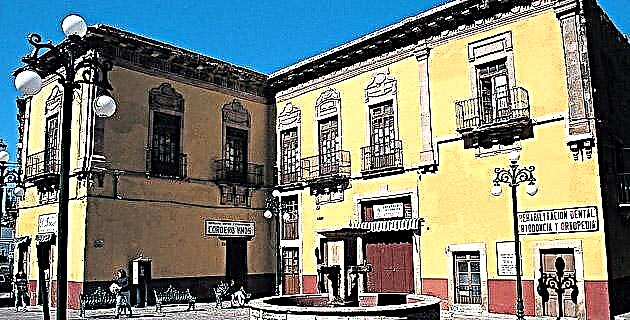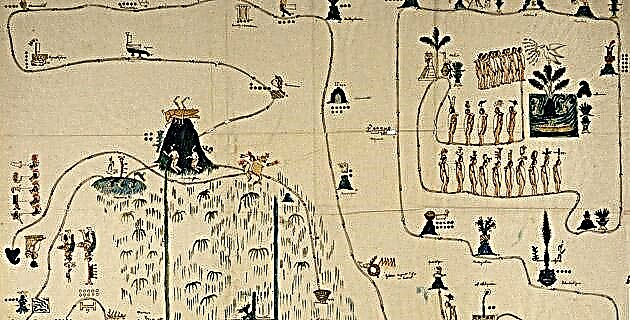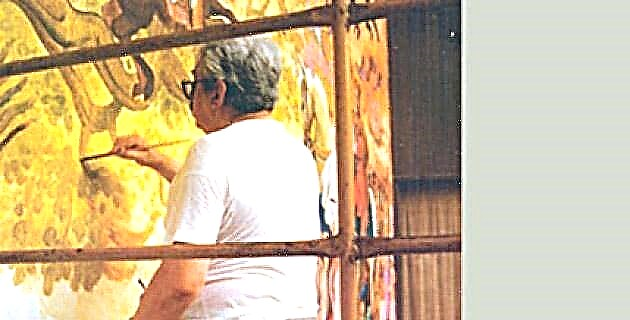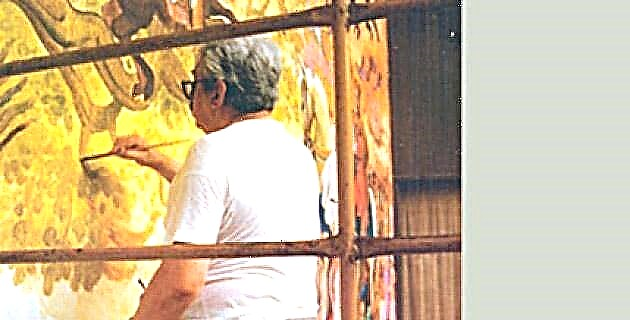
Maestro Montuy received us in his study, at the Cencali hotel, where he lives with his wife. A kind man with a lilting speech, he told us that he was born in Frontera, in the Tabasco wetlands, in 1925.
Maestro Montuy received us in his study, at the Cencali hotel, where he lives with his wife. A kind man with a lilting speech, he told us that he was born in Frontera, in the Tabasco wetlands, in 1925.
Without having an art school, the teacher began to paint around the age of forty-five, first on an easel and then on a wall. "I take this activity as congenital," he told us.
He is a man who breaks the borders of his people, of his state, and merges with the universe, taking something from everywhere, enriching his spirit and embodying it on his canvases; for him, "man becomes universal through his miscegenation."
Montuy paints ideas and legends, which emerge from his imagination. The most important thing is freedom of thought, because “that's what we're human for”.
The master takes six months to prepare his walls, applying several layers with special high-density acrylics, silica sand, calcium carbonate and titanium white, which makes them very resistant to humidity and tremors, but also makes them removable, ending with the assertion of the great master Diego Rivera that "the work is subject to the fate of the building."
Daniel Montuy uses advanced technologies that free him from the need to employ assistants; Thus, he magnifies the plan to scale, scanning it on a computer in sections, then an assistant traces it on the wall and finally the teacher paints it.
His work consists of ten murals completed in Tabasco, among which is "The Birth of the Consciousness of the Universe", based on the Mayan book of the Popol Vuh.
He is currently working on the wall: "Myth and history of the pre-Columbian Mayan universe", located in the Planetarium 2000 in Villahermosa.
In Mexico City he has two mural works: one in the House of Culture in the Venustiano Carranza delegation: "The rebellion of the subjugated peoples", and another in the Zócalo.
For the teacher, his work speaks for itself. We would summarize it in one sentence: "Exuberant like Tabasco."
Source: Aeroméxico Tips No. 11 Tabasco / Spring 1999

